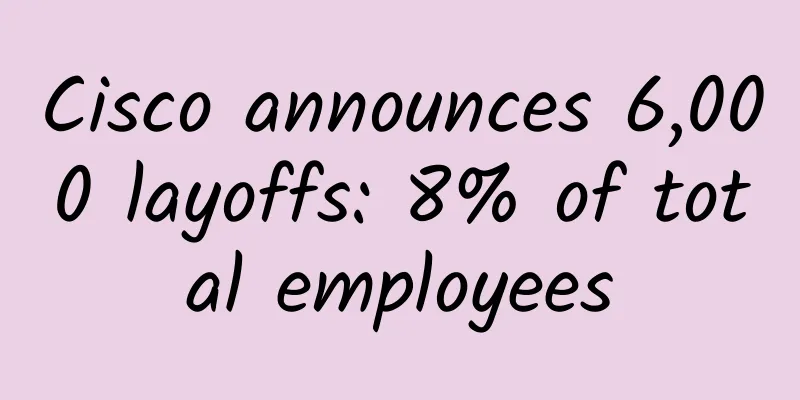Beijing cracks down on ride-hailing services: the straw that breaks the camel's back?

|
Following Guangzhou and Chengdu, traffic management departments in another place have begun to crack down on online ride-hailing services. On June 2, the Beijing Municipal Transportation Commission's Transportation Management Bureau, the Traffic Law Enforcement Corps, and the Public Security Bureau's Public Transportation Security Corps jointly interviewed the person in charge of the "Didi Private Car" platform and clearly pointed out that the "Didi Private Car" and "Didi Express" businesses launched by the company use private cars and rental cars with drivers to engage in passenger transportation services, which violates current laws and regulations. They also reported on the law enforcement situation against private cars since this year, investigating and handling 963 illegal operating vehicles, involving 207 illegal operating vehicles on the Didi Private Car platform, including 161 private cars. Since the second half of last year, local governments have been continuously regulating online ride-hailing services, and calls for crackdowns and killings have been heard. After statistics, we found that the targets of law enforcement in various places are basically private cars, but the real purpose is not to crack down on private cars. The throat of car sources is blocked, and the ride-hailing platforms are ultimately hit hard. Why do they still have to cover up their mistakes? The root cause is that cracking down on private cars is justified, while regulating ride-hailing platforms lacks direct legal basis. In terms of the nature of the vehicles, there are two types of vehicles on the private car platform: one is the vehicles of the car rental company, and the other is private cars. Since most places have implemented a quantitative control system for the car rental industry, the number of compliant vehicles of car rental companies (the property rights belong to the company, and the application indicators have been filed) is very limited, far from meeting the market demand for business travel. Therefore, each private car platform will acquiesce or condone the participation of private cars. In order to avoid risks, private cars are first registered under the name of the car rental company, and then orders are received through the private car platform. The driver is still the owner. It is not an exaggeration to characterize such vehicles as illegal vehicles, and it is also legal to crack down on private cars that are illegal vehicles in the name of private cars. However, the regulatory authorities need to reflect on whether this approach can fundamentally solve the problem? Under the severe crackdown, private cars return to offline or turn to carpooling platforms. Once the limelight passes, they will come back again. There is no end to the cat and mouse game (see another article of the author " How can the supervision of private cars jump out of the vicious circle of "cat and mouse"? "). In any case, the supervision of private cars is still within the legal framework, but the "law" it is based on needs to keep pace with the times. In contrast, direct supervision of car-hailing platforms lacks a clear legal basis, because the nature of car-hailing platforms is not to provide car rental services or passenger transportation services, but to be information publishing platforms. Transactions occur between users and car rental companies (or private car owners) and third-party labor dispatch companies. In addition to the ICP license, the existing law does not set up special licenses for this Internet information service business, and the supervision of Internet information services is not within the scope of responsibility of the traffic management department. Therefore, traffic management departments in various places did not directly target car-hailing platforms before. Even if Guangzhou investigated Uber, it was only from the perspective of not having a business license. However, Beijing's regulation of the ride-hailing platforms this time can be described as a heavy blow, which can be called "the most stringent regulation in history": first, it is believed that the ride-hailing platforms have violated regulations. Although it was only a "talk" and no punishment has been imposed, the ride-hailing platforms have been clearly defined; second, it is believed that the ride-hailing platforms allow users to rent vehicles from rental companies and provide drivers, which is also a violation. As for the former, I have been following the private car industry for a long time, but I can't find any specific and clear basis. As for the latter, if a car rental company provides driver services while renting a vehicle to a user, it does not fall within the scope of the car rental business, but rather passenger transport services, which clearly violates the "Beijing Car Rental Management Measures". However, now the car rental companies on various private car platforms only provide vehicle rental services, not drivers. Users find designated drivers from third-party labor dispatch companies through the private car platform. The original car rental company providing passenger transport services has evolved into two independent services: car rental and labor designated driver services. Although this practice has the element of circumventing supervision, it does not violate any existing legal provisions. In the civil field, anything is allowed unless prohibited by law. Therefore, although the local regulatory authorities were well aware of this practice, they never explicitly denied it, but took a tacit attitude. This is also the bottom line for the legal survival of online car-hailing services. In other words, even if local governments severely crack down on private cars that are affiliated with rental companies and operated through car-hailing platforms, or even directly prohibit car-hailing platforms from allowing private cars to access, car-hailing platforms at least have the way to cooperate with car rental companies' compliant vehicles. Although they cannot meet market demand, they will not be completely strangled and have no room for survival. Now, under the supervision in the name of encouraging innovation, what innovations can car-hailing platforms have to survive? Recently, the supervision of online car-hailing services is in full swing in various places, and the online car-hailing industry is also facing increasing policy risks. If various places follow Beijing's example and characterize the car-hailing platforms as illegal and prohibit the separation of car rental and labor driving, this will surely be the last straw that breaks the camel's back for online car-hailing services. This is probably not something the public would like to see. I hope that the regulatory authorities will truly uphold the principles of encouraging innovation and regulating development, get rid of the shackles of interests, abandon prejudices and biases, and give online car-hailing services a reasonable and legal living space. As a winner of Toutiao's Qingyun Plan and Baijiahao's Bai+ Plan, the 2019 Baidu Digital Author of the Year, the Baijiahao's Most Popular Author in the Technology Field, the 2019 Sogou Technology and Culture Author, and the 2021 Baijiahao Quarterly Influential Creator, he has won many awards, including the 2013 Sohu Best Industry Media Person, the 2015 China New Media Entrepreneurship Competition Beijing Third Place, the 2015 Guangmang Experience Award, the 2015 China New Media Entrepreneurship Competition Finals Third Place, and the 2018 Baidu Dynamic Annual Powerful Celebrity. |
Recommend
FastQuery: a framework for fast data operations
FastQuery fast operation data layer framework Fas...
Keywords in the 4G virtual operator era: opportunities and challenges coexist
Introduction: In 2014, the 4G industry developed ...
One man's plan to resurrect the animals we can't save
Leviathan Press: Scientists estimate that 98% of ...
Who do mosquitoes like to bite? Scientists have found the smell of human "greasy molecules"
There have long been theories about who is more l...
The marketing logic of private domain traffic
Private domain traffic is a good thing for some p...
Crying... The crazy Flappy 48 is here
If you think "Flappy Bird" and "204...
How terrible is the only insect that can live in Antarctica?
Compared to the Arctic, Antarctica is much more d...
Practical traffic diversion: How to build a traffic diversion and promotion system?
A word of advice: I would like to build an ecolog...
China's "King of Deserts" is covered in snow, and netizens are furious to find out the truth...
Recently, the Taklimakan Desert in Xinjiang welco...
Hainan Mini Program Franchise Company, how much does it cost to join a mobile mini program?
How much does it cost to join Hainan Mobile Mini ...
Promotion and Marketing: What to do if traffic is high but conversion rate is low?
What if you have lots of visitors but not a lot o...
Analysis of practical cases of information flow in 2019!
Information flow advertising is called performanc...
Toothache is really a disease! Not only does it hurt, it can also cause these physical diseases——
Review expert: Wang Xuejiang, professor at Capita...
Is the oral irrigator useful? Is it just a waste of money?
As the saying goes, "Toothache is not a dise...
Zhihu Product Analysis Report
"Where there is a question, there is an answ...









